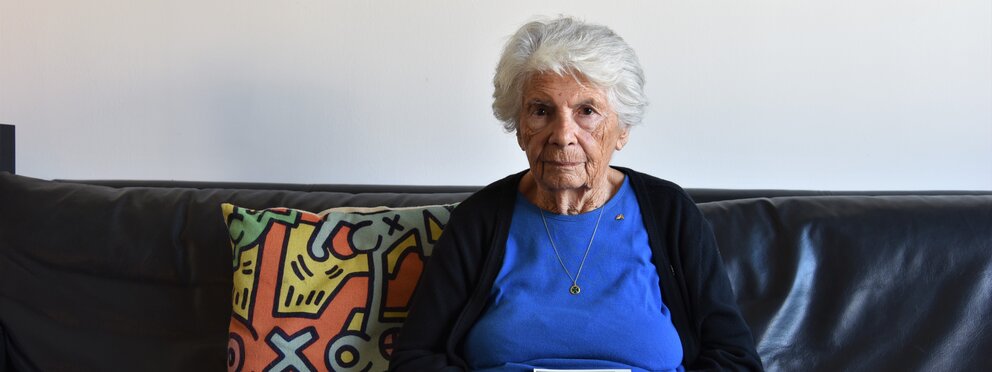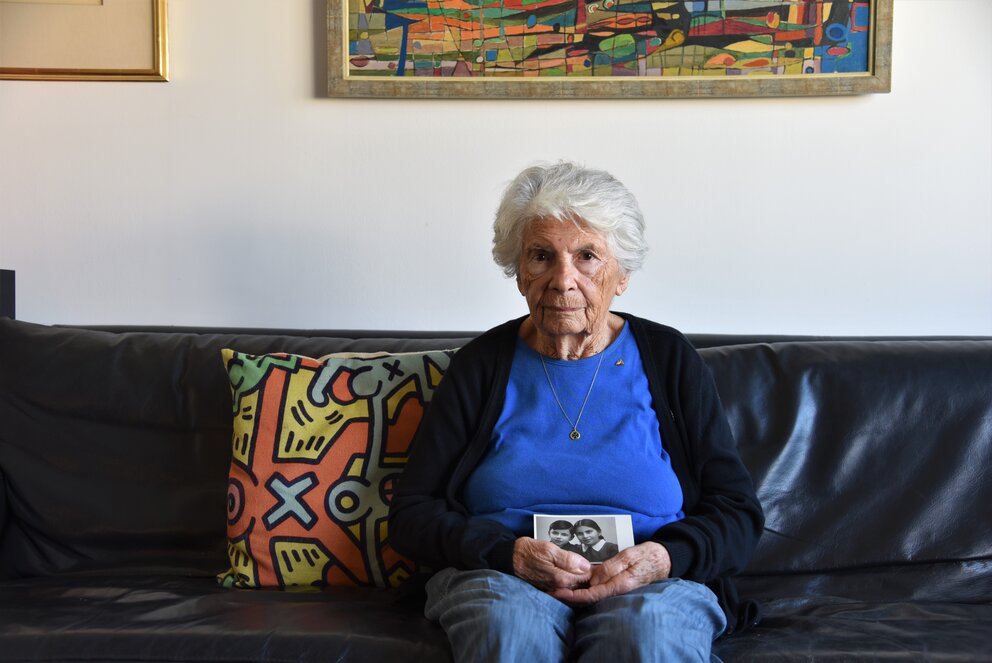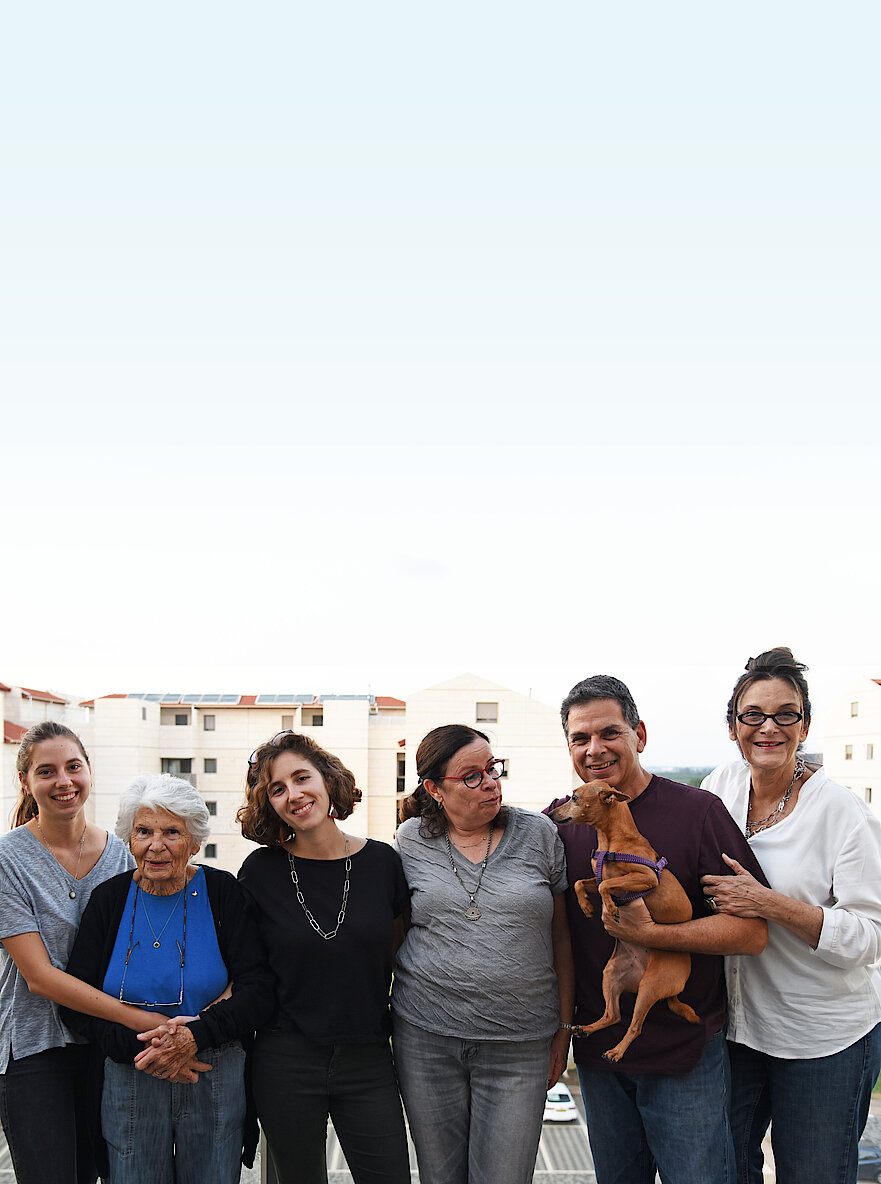
Grete Hamburg
About Grete Hamburg
Grete Hamburg, née Jungleib, was born on 1 January 1930 in Hlohovec, Slovakia. Her father Arnold was a goldsmith and watchmaker, her mother Malvina worked in the business. Her childhood in the pious Jewish family was happy and her relationship with her younger brother Walter was very close.
Under the pressure of the persecution of the Jews, the family moved several times from 1942 onwards. In 1944, she and her family were arrested, taken to the Sered transit camp in western Slovakia and deported to Auschwitz. Grete's grandparents and her father did not survive the camps. From November 1944, Grete and her mother did forced labour in a munitions factory in Lippstadt [a subcamp of the Buchenwald concentration camp] and were liberated by the US Army at the beginning of May 1945. When they emigrated to Israel, she met her husband, with whom she has two children, Daniella and Rami.
Grete Hamburg now lives near Tel Aviv. It was not until 2015 that the whereabouts of her brother Walter Jungleib were clarified with the help of Bella and Yitzhak Reichenbaum from Haifa: he was hanged by SS men in the night of 21 April 1945 in the Bullenhuser Damm school building [subcamp of Neuengamme concentration camp] in Hamburg - along with 19 other children.
"It's hard to talk to your children about what you did to their parents. It's hard."

A picture to live on
After all the horrors that she and her family experienced, Grete Hamburg coped with the time after the war and her emigration to Israel with a positive attitude. And this is due to the very loving family that she founded together with her husband and that we were able to experience as a strong support for Grete during our interview. The relationship with her granddaughters in particular is very close and means a lot to Grete.

Our encounter
Walter and Grete, the story of the siblings, leaves me shaken. It makes me realise that the testimony of surviving and continuing to live always refers to the countless children, women and men who did not survive the crimes. I cannot and will not understand how an adult could kill a young person in such a brutal way. The murder of the children from Bullenhuser Damm is beyond my imagination, beyond what I can bring up. And I can't imagine what it must mean to be certain about the murder of your own brother after all these years. How to find the strength to talk about all this? Grete did and I am grateful for that.
The day before our interview, Grete and her daughter invited us to a 'business lunch' in a loft-like, hip restaurant. It was the Tel Aviv of 2019, where we met Grete for the first time. Tattooed waiters served huge pizzas, praised the gigantic cakes and lounge music accompanied our conversations. Although Grete Hamburg herself didn't speak much and kept a watchful eye on the scene, it became clear who was the head of the family after a perfectly choreographed tussle over the bill.
Grete Hamburg herself met us at the railway station the next morning. The conversation took place in the flat of her son and his wife. The daughter was also there and two granddaughters announced that they would be arriving later. The table was quickly filled with shakshuka, salads and bread. Even before the conversation had begun, we were in the middle of this special family atmosphere. I was so impressed by this atmosphere because it seemed to me to be one of Grete's most important emotional supports in her most vulnerable moments. Small gestures gave me an idea of how difficult the conversation must have been for Grete. As she spoke, she repeatedly traced the crease of her trousers with her fingers. It quickly became clear that she had prepared herself for the conversation. She decided what we were going to talk about and also when the conversation should be interrupted for a cigarette break.
The Tel Aviv of 2019, the woman with a cigarette in her hand at the train station, the table full of food, the balcony full of people from different generations, moments of warmth and community - these are all impressions that I will remember of Grete Hamburg and her family. The brutality in the story of Walter and Grete Jungleib remains unimaginable for me and I have gained an impression of a person who combines both sides of strength and vulnerability with all the challenges and impossibilities.
